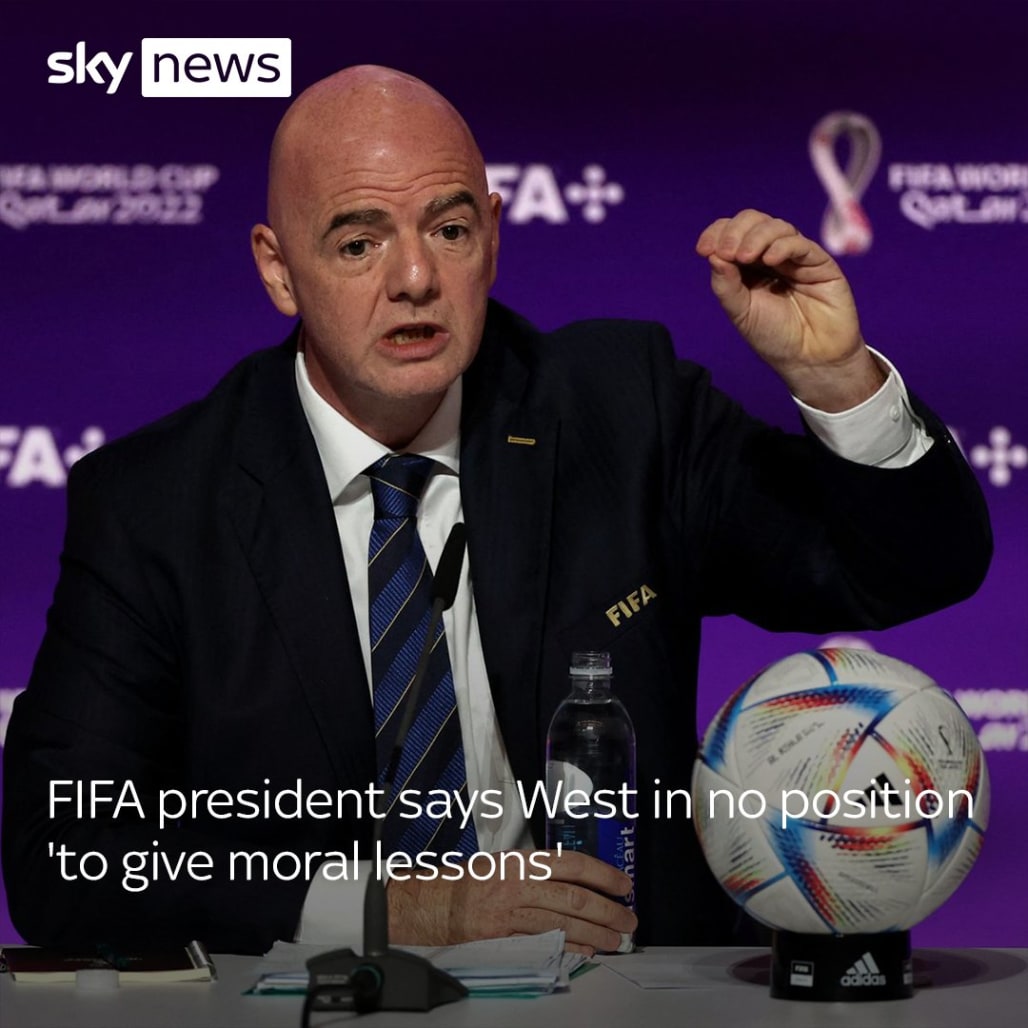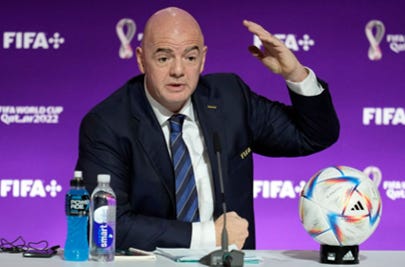In 2010, the Sunday Times ran a story alleging that FIFA officials had been seemingly caught in a sting, demonstrating their willingness to sell World Cup their hosting votes to reporters posing as businessmen. Upon learning of these allegations, this was the exact moment that I finally decided to jump fully into the study of sports governance.
I recall thinking at the time: “What in the world is wrong with FIFA? And more importantly, why can’t it be fixed?” So took a career turn and spent the next several years studying FIFA, talking to close observers, insiders and journalists. My eyes were opened wide to what I eventually came to call a “nether world of international governance” — international sports organizations are unique creatures, not businesses, not governmental, not civil society organizations, but with characteristics of all three.
My research took me to a place a did not expect. FIFA, like other international sport federations that sit within the so-called Olympic movement, is largely unaccountable to the rest of society. They play by their own rules and they get away with it, often with arrogance and impunity. This situation is not readily fixed.

Over the past weekend, FIFA’s president, Gianni Infantino (above), gave a master class in the world according to FIFA, offering his (and presumably the organization’s) views on everything from LGBTQ rights to immigration to Europe and a defense of authoritarian governance, among many other topics. All this came shortly after FIFA requested that players and fans keep football and politics separate. It was a remarkable demonstration of a narrow worldview that must arise from the insularity of sports organizations and also the absolute tone-deafness of FIFA on the world stage.
After my initial deep dive into FIFA governance more than a decade ago, I wrote an academic paper summarizing what I had learned. In a nutshell, I concluded that holding FIFA accountable to laws and norms was incredibly difficult for a variety of reasons. Since that time multiple FIFA officials were arrested as a result of an U.S. government investigation, several were (and still are being) prosecuted. However, the larger lesson of the FIFA scandal is that FIFA continues merrily along, still largely unaccountable.
Below, I share the introduction of my 2013 paper — How can FIFA be held accountable? — and after the jump I have made a full PDF available to paid subscribers. My aim with the paper is to explain how it is that a small international sports federation incorporated in Switzerland that governs the world’s most important and popular sport sits largely outside the boundaries of 21st century international and national governance.
It is a remarkable story of policy failure — a failure that could be fixed with greater leadership from politicians or businesses. I think my analysis holds up very well in 2022 as the long-awaited and much discussed Qatar World Cup kicks off. I hope that the analysis explains, at a fundamental institutional level, why it is that FIFA can do what it does and why changing the organization remains so difficult. I welcome your comments and discussion.
How can FIFA be Held Accountable?
In an inauspicious coincidence, May 31, 2011 was the 100th anniversary of the launch of the Titanic and it was also the date on which Joseph ‘‘Sepp’’ Blatter the much-criticized president of FIFA (the Federation Internationale de Football Association, ‘‘association football’’ is generally known simply as ‘‘football’’ and in some places, as ‘‘soccer’’ and in this paper both terms are used), announced that he would see the organization through the latest charges of corruption that had been leveled against it, declaring, ‘‘I am the captain, we will weather the storm together’’ (Hughes, 2011a). Less than one year later, Blatter continued the metaphor, declaring that the storm had subsided, ‘‘we are back in the harbor. . .and are heading to calm, clearer waters’’ (Collett, 2012). In October 2012 Blatter announced that the reform process would come to a close at the May 2013 FIFA Congress (FIFA, 2012a).
Despite Blatter’s reassurances a storm of controversies continued to surround FIFA, which since 1904 has been the international non-governmental, non-profit organization responsible for the governance of global football. The controversies included allegations of corruption such as bribery in the selection process for the 2018 and 2022 World Cup venues (chosen as Russia and Qatar), allegations of payoffs for votes in advance of the 2011 FIFA presidential election – complete with a sordid story of bribes delivered in brown paper bags (Kelso, 2011a,b). In addition, FIFA’s reform process has received broad criticism, including from the chair of the committee FIFA established to oversee the process, Mark Pieth of the University of Basel (Alvad & Bang, 2012).
Accountability of FIFA matters for the governance of the sport, the business of football and to the larger issue of the accountability of international organizations. Sport generally, and football specifically, brings together people and nations in a manner arguably not seen in any other area of global society. While football itself is not inherently ‘‘big business’’ in economic terms, increasingly football has implications for big business, particularly in the consequences of the periodic decisions associated with hosting the World Cup, which is often tied to large programs of government investment in infrastructure, television rights and sponsorship deals. The governance of FIFA is also a case study in the governance of international organizations, which includes a large class of governmental and non-governmental organizations that justify their legitimacy in terms of serving broadly shared interests. Effective governance of such institutions is thus a matter of common interest (Pieth, 2011).
This paper asks and seeks to answer what seems to be a straightforward question, how can FIFA be held accountable? I answer this question by drawing on the broader academic literature on the governance of international organizations from the problem oriented perspective of the policy sciences. Specifically, I use ‘‘seven mechanisms of accountability in world politics’’ (Grant & Keohane, 2005; Jordan and van Tuijl, 2006) to structure an appraisal of alternative ways in which FIFA might be held accountable.
To be clear, this paper has no ambition of advancing academic theories of accountability or international organizations, it is a focused policy appraisal of FIFA which draws upon such scholarship. Data on FIFA used in the appraisal, a notoriously secretive organization, come from publicly available documents and media reports. The paper begins with short discussions of accountability and international organizations, FIFA and international football and the current crisis surrounding FIFA. The paper concludes its survey of mechanisms of accountability with a discussion of the prospects for holding FIFA accountable in practice, drawing on the precedent of the reform of the International Olympic Committee.
While there are numerous and powerful mechanisms through which FIFA might be held accountable, such mechanisms are indirect and difficult to implement. Direct accountability of FIFA appears unlikely. Holding FIFA to account will require a degree of leadership in international sports governance that has only been hinted at to date.
If you like the sort of stuff you read here, I’d appreciate a like of this post, and sharing is particularly important. Please consider a subscription at any level. I welcome comments and respectful discussion and debate. This is a place where people with a diversity of views on contested and complex issues can meet up and exchange views. I appreciate your participation.




